- Home
- Liane Moriarty
The Husband’s Secret Page 6
The Husband’s Secret Read online
Page 6
‘Do you want to know the secret I told Daddy?’ Polly looked up at her through her eyelashes.
Polly would sway all right. Cecilia could see it already.
‘That’s okay,’ said Cecilia. ‘You don’t need to tell me.’
‘The secret is that I’ve decided to invite Mr Whitby to my pirate party,’ said Polly.
Polly’s seventh birthday was the week after Easter. Her pirate party had been a popular topic of conversation for the last month.
‘Polly,’ said Cecilia. ‘We’ve talked about this.’
Mr Whitby was the PE teacher at St Angela’s and Polly was in love with him. Cecilia didn’t know what it said about Polly’s future relationships that her first crush was a man who appeared to be about the same age as her father. She was meant to be in love with teenage popstars, not a middle-aged man with a shaved head. It was true that Mr Whitby had something. He was very broad chested and athletic looking and he rode a motorbike and listened with his eyes, but it was the school mums who were meant to feel his sex appeal (which they certainly did; Cecilia herself was not immune), not his six-year-old students.
‘We’re not asking Mr Whitby to your party,’ said Cecilia. ‘It wouldn’t be fair. Otherwise he’d feel like he had to come to everyone’s parties.’
‘He’d want to come to mine.’
‘No.’
‘We’ll talk about it another time,’ said Polly airily, pushing her chair back from the table.
‘We won’t!’ Cecilia called after her, but Polly had sauntered off.
Cecilia sighed. Well. Lots to do. She stood and pulled John-Paul’s letter from Esther’s book. First, she would file this damned thing.
He said he’d written it just after Isabel was born, and that he didn’t remember exactly what it said. That was understandable. Isabel was twelve, and John-Paul was often so vague. He was always relying on Cecilia to be his memory.
It was just that she was pretty sure he’d been lying.
chapter five
‘Maybe we should break in.’ Liam’s voice pierced the silent night air like the shriek of a whistle. ‘We could smash a window with a rock. Like, for example, that rock right there! See, Mum, look, see, see, can you see –’
‘Shhh,’ said Tess. ‘Keep your voice down!’ She banged the door knocker over and over.
Nothing.
It was eleven o’clock at night and she and Liam were standing at her mother’s front door. The house was completely dark, the blinds drawn. It looked deserted. In fact, the whole street seemed eerily silent. Was no one up watching the late news? The only light came from a streetlight on the corner. The sky was starless, moonless. The only sound was a single plaintive cicada, the last survivor of summer, and the soft sigh of far-off traffic. She could smell the sweet perfume of her mother’s gardenias. Tess’s mobile phone had run out of battery. She couldn’t call anyone, not even a taxi to take them to a hotel. Maybe they would have to break in, but Tess’s mother had become so security conscious over the last few years. Didn’t she have an alarm now? Tess imagined the sudden woop, woop of an alarm shattering the neighbourhood.
I can’t believe this is happening to me.
She hadn’t thought it through. She should have called to let her mother know that they were coming, but she’d been in such a state, booking the flight, packing, getting to the airport, finding the right gate, Liam trotting alongside her, talking the whole time. He was so excited, he wouldn’t shut up the whole flight, and now he was so exhausted he was virtually delirious.
He thought they were on a rescue mission to help Grandma.
‘Grandma has broken her ankle,’ Tess had told him. ‘So we’re going to stay and help her for a little while.’
‘What about school?’ he’d asked.
‘You can miss a few days of school,’ she’d told him, and his face had lit up like a Christmas tree. She hadn’t mentioned anything about attending a new school. Obviously.
Felicity had left, and while Tess and Liam packed, Will had slunk about the house, pale and sniffing.
When they were alone, and she was throwing clothes into a bag, he’d tried to talk to her, and she’d turned on him, like a cobra rising to strike, hissing through clenched, crazy teeth, ‘Leave me alone.’
‘I’m sorry,’ he said, taking a step backwards. ‘I’m so sorry.’
He and Felicity must have used the word ‘sorry’ about five hundred times by now.
‘I promise you,’ said Will, lowering his voice, presumably so Liam wouldn’t overhear, ‘if there’s any doubt in your mind, I want you to know that we never slept together.’
‘You keep saying that, Will,’ she said. ‘I don’t know why you think that makes it better. It makes it worse. It never occurred to me that you would sleep together! Like, thank you so much for your restraint. I mean, for God’s sake –’
Her voice trembled.
‘I’m sorry,’ he said again, and wiped the back of his hand across his nose.
Will had behaved perfectly normally in front of Liam. He’d helped him find his favourite baseball cap under his bed, and when the cab had arrived, he’d got down on his knees and half-cuddled, half-wrestled him in that rough, loving way of fathers with their sons. Tess had seen exactly how Will had managed to keep this thing with Felicity a secret for so long. Family life, even with just one little boy, had its own familiar rhythms and it was perfectly possible to keep right on dancing like you always had, even when your mind was somewhere else.
And now here she was, stranded in this sleepy little North Shore suburb of Sydney with a delirious six year old.
‘Well,’ she said carefully to Liam. ‘I guess we should –’
What? Wake up a neighbour? Risk the alarm?
‘Wait!’ said Liam. He put a finger to his lips; his big eyes were pools of shining blackness in the dark. ‘I think I hear something from inside.’
He pressed his ear to the front door. Tess did the same.
‘Hear it?’
She did hear something. A strange rhythmic thumping sound from overhead.
‘It must be Grandma’s crutches,’ said Tess.
Her poor mother. She’d probably been in bed. Her bedroom was right at the other end of the house. Bloody Will. Bloody Felicity. Dragging her poor crippled mum out of bed.
When exactly had this thing between Will and Felicity started? Was there an actual moment where something changed? How could she have missed it? She saw them together every single day of her life and she’d never noticed a thing. Felicity had stayed for dinner last Friday night. Maybe Will had been a little quieter than usual. Tess had thought it was because his back was playing up. He’d been tired. They’d all been working so hard. But Felicity had been in fine form. Luminous, even. Tess had caught herself staring a few times. Felicity’s beauty was still so new, and it made everything about her beautiful. Her laugh. Her voice.
Yet Tess hadn’t been wary. She’d been stupidly secure of Will’s love. Secure enough to wear her old jeans with the black T-shirt that Will said made her look like a bikie chick. Secure enough to tease him for his mild grumpiness. He’d whacked her bottom with the tea towel when they were cleaning up the kitchen afterwards.
They hadn’t seen Felicity on the weekend, which was unusual. She’d been busy, she said. It had been rainy and cold; Tess and Will and Liam had watched TV, played snap, made pancakes together. It had been a good weekend. Hadn’t it?
It occurred to her that Felicity was luminous on Friday night because she was in love.
The door swung open and light flooded the hallway. ‘What in the world?’ said Tess’s mother. She was wearing a blue quilted dressing-gown and leaning heavily on a pair of crutches, her eyes blinking myopically, her face dragged down with pain and effort.
Tess looked down at her mother’s white-bandaged ankle and imagined her waking up, hauling herself out of bed, hobbling around trying to find her dressing-gown and then the crutches.
‘Oh Mum,’ she said
. ‘I’m so sorry.’
‘Why are you sorry? What are you doing here?’
‘We’ve come –’ she began but her throat closed up.
‘To help you, Grandma!’ cried Liam. ‘Because of your ankle! We flew here in the dark!’
‘Well, that’s very lovely of you, my darling boy.’ Tess’s mother moved on her crutches to the side to let them in. ‘Come in, come in. Sorry I took so long coming to the door, I had no idea crutches were so damned tricky. I imagined myself swinging jauntily along, but they dig into your armpits like I don’t know what. Liam, go turn on the light in the kitchen and we’ll have some hot milk and cinnamon toast.’
‘Cool!’ Liam headed towards the kitchen and, for some inexplicable six-year-old-boy reason, began moving his arms and legs jerkily like a robot. ‘I compute! I compute! Affirmative – to – cinnamon toast!’
Tess carried their bags inside.
‘Sorry,’ she said, again, as she put them down in the hallway and looked up at her mother. ‘I should have called. Is your ankle very painful?’
‘What happened?’ said her mother.
‘Nothing.’
‘Rubbish.’
‘Will,’ she began, and stopped.
‘My darling girl.’ Her mother lurched about alarmingly as she tried to reach for her without losing hold of the crutches.
‘Don’t break another bone,’ Tess steadied her. She could smell her mother’s toothpaste, her face cream and soap, and beneath it all that familiar musky, musty Mum smell. On the hallway wall behind her mother’s head was a framed photo of herself and Felicity at seven years old, in their white lacy communion dresses and veils, their palms piously pressed together at the centre of their chests in the traditional first communion pose. Auntie Mary had an identical photo in the same spot in her hallway. Now Felicity was an atheist, and Tess described herself as ‘lapsed’.
‘Hurry up and tell me,’ said Lucy.
‘Will,’ Tess tried again. ‘And, and . . .’ She couldn’t finish.
‘Felicity,’ supplied her mother. ‘Am I right? Yes.’ She lifted one elbow and thumped a crutch hard against the floor so that the first communion photo rattled. ‘The little bitch.’
1961. The Cold War was at its iciest. Thousands of East Germans were fleeing for the West. ‘No one has any intention of building a wall,’ announced East Germany’s Chancellor, Walter Ulbricht, described by some as ‘Stalin’s robot’. People looked at each other with raised eyebrows. What the . . .? Who said anything about a WALL? Thousands more packed their bags.
In Sydney, Australia, a young girl called Rachel Fisher sat on the high wall overlooking Manly Beach, swinging her long, tanned legs, while her boyfriend, Ed Crowley, flipped through the Sydney Morning Herald, annoyingly engrossed. There was an article in the paper about the developments in Europe but neither Ed nor Rachel had much interest in Europe.
Finally Ed spoke. ‘Hey, Rach, why don’t we get you one of those?’ he said, and pointed at the page in front of him.
Rachel peered over his shoulder without much interest. The paper was open on a full-page advertisement for Angus & Coote. Ed’s finger was on an engagement ring. He grabbed her elbow just before she toppled off the wall onto the beach.
They were gone. Rachel was in bed, with the television on, the Women’s Weekly in her lap, a cup of Earl Grey tea on the bedside table, along with the flat cardboard box of ‘macarons’ that Lauren had brought along tonight. Rachel should have offered them around at the end of the night, but she’d forgotten. It may have been deliberate; she could never be sure just how much she disliked her daughter-in-law. It was possible she hated her.
Why not go on your own to New York, my dear girl? Get two years’ worth of ‘Lauren time’!
Rachel slid the cardboard tray onto the bed in front of her and examined the six garishly coloured biscuits. They didn’t look that special to her. Supposedly they were the latest thing amongst people who cared about the latest things. These ones were from a shop in the city where people lined up for hours to buy them. Fools. Did they have nothing better to do? Although it seemed unlikely that Lauren had lined up for hours. After all, Lauren had better things to do than everyone! Rachel had a feeling there might have been a story about the procurement of the macarons, but she didn’t really listen when Lauren was speaking about anything that didn’t involve Jacob.
She selected a red one and took a tentative bite.
‘Oh God,’ she moaned a moment later, and thought, for the first time in she didn’t know how long, of sex. She took a bigger bite. ‘Mother Mary.’ She laughed out loud. No wonder people lined up for them. It was exquisite: the raspberry flavour of the creamy centre was like the barest touch of fingertips on her skin, the meringue light and tender, like eating a cloud.
Wait. Who said that?
‘It’s like eating a cloud, Mummy!’ An entranced little face.
Janie. About four years old. Her first taste of fairy floss at – Luna Park? A church fete? Rachel couldn’t zoom back her memory. It was focused only on Janie’s shining face and her words, ‘Like eating a cloud, Mummy.’
Janie would have loved these macarons.
Without warning, the biscuit slipped from Rachel’s fingers and she hunched over, as if she could duck the first punch, but it was too late, it had her. It had been a long time since it had been as bad as this. A wave of pain, as fresh and shocking as that first year when she woke up each morning and for one instant she forgot, before she was punched in the face with the realisation that Janie wasn’t in the room down the hallway, spraying herself with too much sickly Impulse deodorant, pasting orange make-up over her perfect seventeen-year-old skin, dancing to Madonna.
The almighty towering injustice of it tore and twisted her heart like contractions. My daughter would have loved these silly biscuits. My daughter would have had a career. My daughter could have gone to New York.
A steel vice wrapped around her chest and squeezed so she felt like she was suffocating and she gasped for air, but beneath her panic she could hear the weary, calm voice of experience: You’ve been here before. It won’t kill you. It feels like you can’t breathe, but you actually are breathing. It feels like you’ll never stop crying, but you actually will.
Finally, little by little, the vice around her chest loosened its grip enough for her to breathe again. It never went away completely. She’d accepted that a long time ago. She’d die with the clamp of grief still gripping her chest. She didn’t want it to go away. That would be like Janie had never existed.
She was reminded of those Christmas cards, the first year. Dear Rachel, Ed and Rob, we wish you a merry Christmas and a happy new year.
It was as if they’d just closed up the space where Janie had been. And merry! Were they out of their silly little minds? She’d sworn each time she’d opened another card, ripping it into tiny pieces.
‘Mum, give them a break, they just don’t know what else to say,’ Rob had said to her tiredly. He’d been just fifteen, and his face had seemed to belong to a sad, pale fifty year old with acne.
Rachel swept the macaron crumbs off the sheets with the back of her hand. ‘Crumbs! Christ Almighty, look at these crumbs!’ Ed would have said. He thought eating in bed was immoral. Also, if he could see the television sitting there on the chest of drawers, he’d have a fit. Ed believed that people who had televisions in their bedroom were akin to cocaine addicts: weak, debauched types. The bedroom, according to Ed, was for a prayer on your knees next to the bed, your head resting on your fingertips, lips moving rapidly (very rapidly; he didn’t believe in wasting too much of the Big Guy’s time), followed by sex (preferably every night), followed by sleep.
She picked up the remote and pointed it at the television, flicking through the channels.
A documentary about the Berlin Wall.
No. Too sad.
One of those crime investigation shows.
Never.
A family sitcom.
She left i
t there for a moment, but it was a husband and a wife shouting at each other and their voices were horrible and high-pitched. Instead, she switched it over to a cooking show and turned the sound down. Ever since she’d been living alone, she’d gone to bed with the television on; the comforting banality of the murmuring voices and flickering images warded off the feeling of terror that could sometimes overwhelm her.
She lay on her side and closed her eyes. She slept with the lights on. After Janie died she and Ed couldn’t stand the dark. They couldn’t go to sleep like normal people. They had to trick themselves and pretend that they weren’t going to sleep.
Behind her closed eyelids, she saw Jacob toddling along a New York street, wearing his little denim overalls, crouching down with his fat little hands on his knees to examine the steam billowing out of the vents in the road. Was that steam hot?
Had she been crying for Janie before, or had she really been crying for Jacob? All she knew was that once they took him from her, life would go back to being unendurable, except – and this was the worst part – she would in fact endure it, it wouldn’t kill her, she’d keep on living day after day after day, an endless loop of glorious sunrises and sunsets that Janie never got to see.
Did you call for me, Janie?
That thought was always like the tip of a knife twisting and turning at her very core.
She’d read somewhere that wounded soldiers begged for morphine and their mothers as they died on the battlefield. The Italian soldiers especially. ‘Mamma mia!’ they called.
In a sudden movement that wrenched her back, Rachel sat up and hopped out of bed in Ed’s pyjamas (she’d started wearing them straight after he died and never stopped; they didn’t really smell of him any more, but she could almost imagine that they did).
She got down on her knees next to her chest of drawers and pulled out an old photo album with a soft faded green vinyl cover.

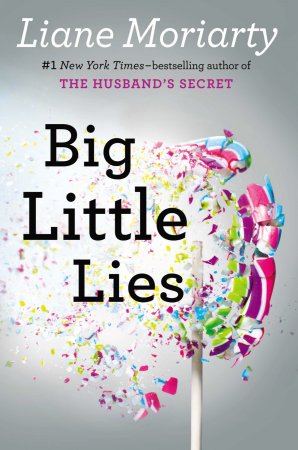 Big Little Lies
Big Little Lies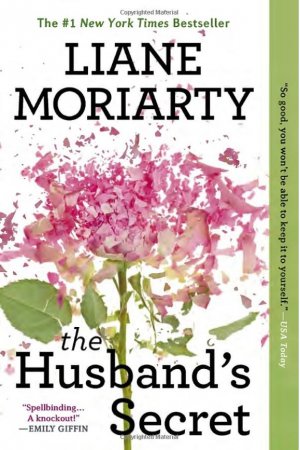 Husband's Secret
Husband's Secret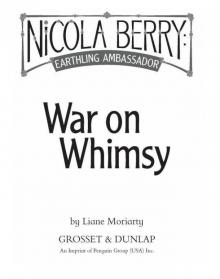 War on Whimsy
War on Whimsy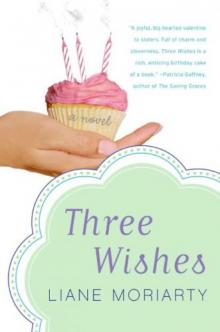 Three Wishes
Three Wishes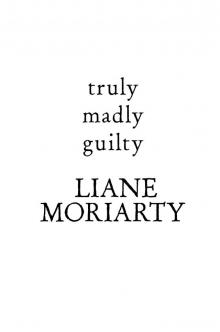 Truly Madly Guilty
Truly Madly Guilty Earthling Ambassador
Earthling Ambassador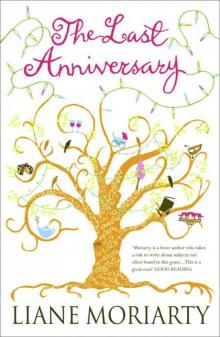 The Last Anniversary
The Last Anniversary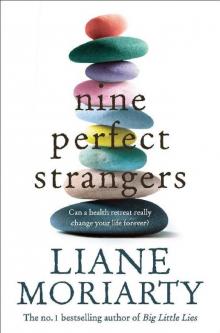 Nine Perfect Strangers
Nine Perfect Strangers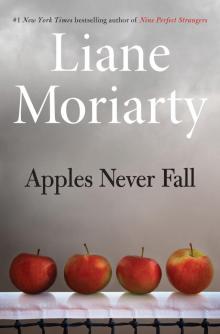 Apples Never Fall
Apples Never Fall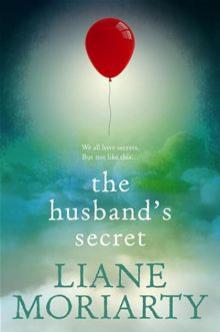 The Husband’s Secret
The Husband’s Secret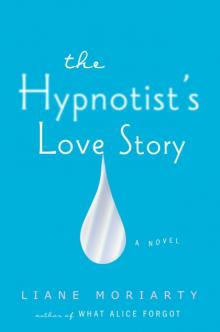 The Hypnotist’s Love Story
The Hypnotist’s Love Story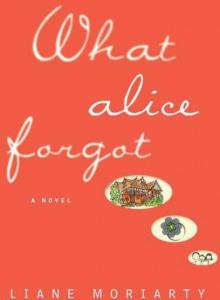 What Alice Forgot
What Alice Forgot